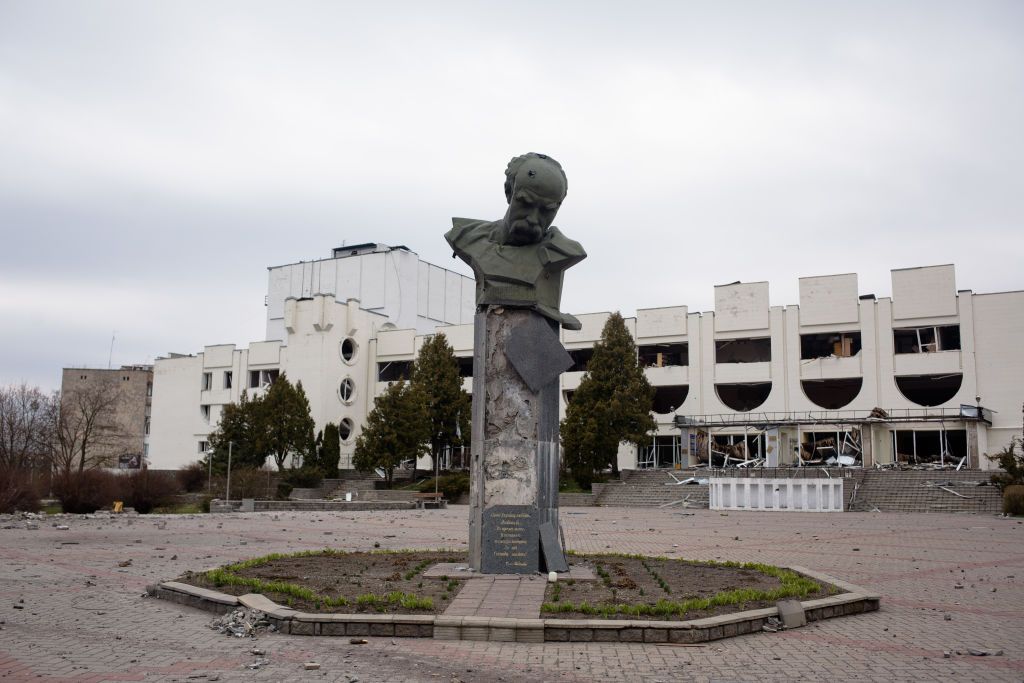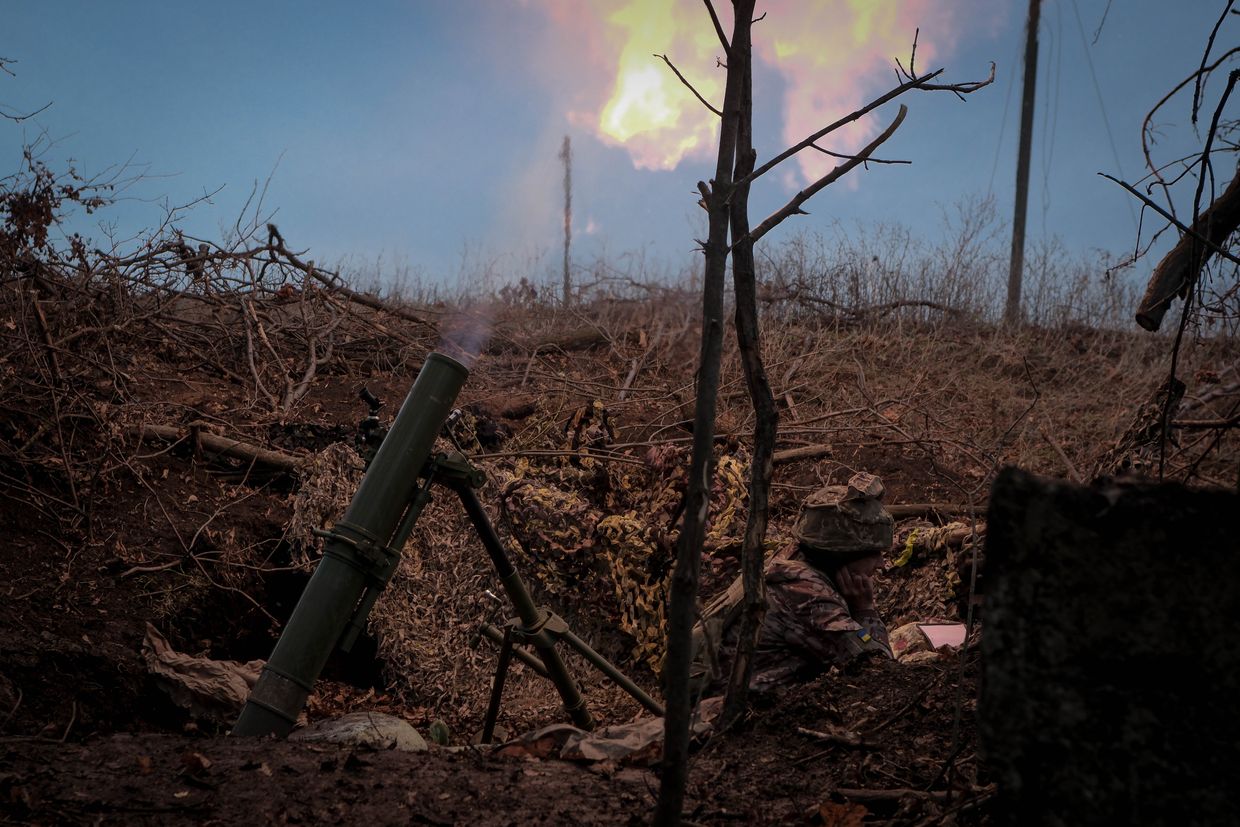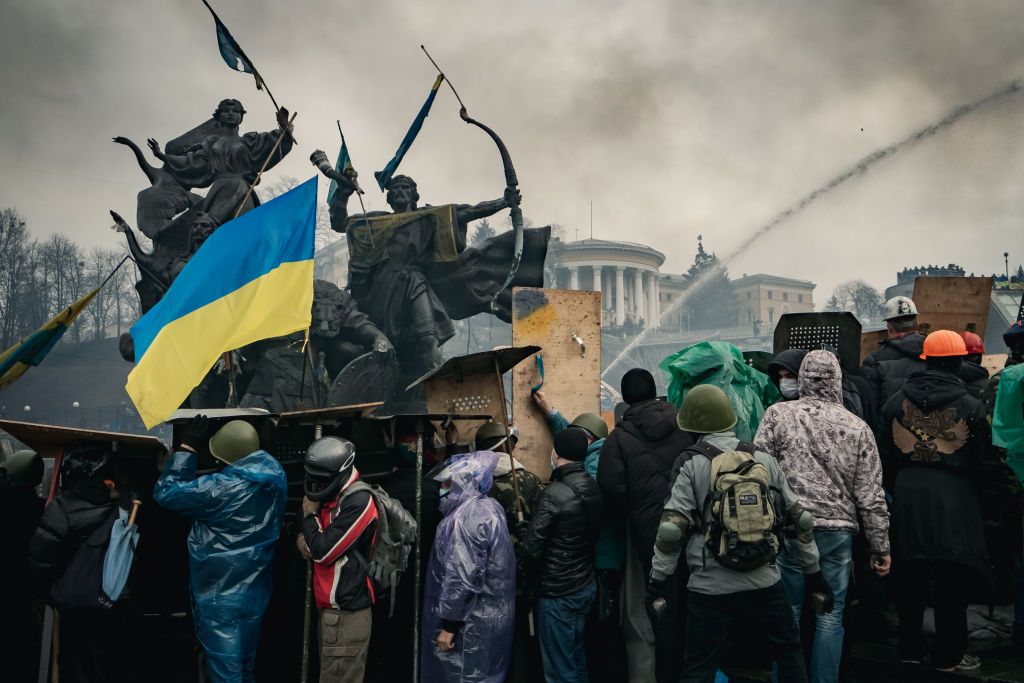Wartime memoir navigates loss and preserving memory of fallen soldiers

A historian by profession who has studied war for over a decade, Olesya Khromeychuk found her research spilling over into real life when her older brother Volodymyr was killed in 2017 near Popasna in Luhansk Oblast, nearly two years into his military service.
The Russian invasion of Ukraine’s Donbas region, which began in 2014, had mostly disappeared from international headlines by then, and “most Western Europeans did not even remember that there was a war raging in Eastern Europe.”
However, for the majority of Ukrainians, terms such as shelling, bombing, captivity, casualty, and war crimes have become more than just words in history books. These terms have increasingly encapsulated their reality over the past decade.
“The Death of a Soldier Told by His Sister,” Khromeychuk’s memoir, which was written mostly before the full-scale invasion of Ukraine in February of 2022, is a reflection not only on the loss of a family member.
The book's core delves into a profoundly personal experience of loss during the war in Ukraine. However, thanks to Khromeychuk’s strength, openness, and vulnerability, it also serves as a compass for navigating grief within an ever more conflict-ridden world.
The exact number of Ukrainian soldiers that have been killed since Russia launched its all-out war is unknown, but nearly every cemetery in the country has a section dedicated to the soldiers who have given their lives to defend Ukraine against Russian aggression.
As the prospect of a long-term war drags on, and more people are called up to serve on the front line, Ukraine is faced with questions of how, as a society, to mourn and commemorate the fallen.
Grieving the loss of a loved one is typically a personal journey. The lives of those who outlive them become divided into periods of "before" and "after" their death and the impact of this loss is not necessarily something that one wishes to divulge to just anyone.
However, when a life is taken during a war, loss inevitably transcends the personal realm. It becomes a collective grief felt by the nation and requires navigating sometimes surreal experiences accompanying such a tragedy. As Khromeychuk describes it, “there is nothing natural, nothing normal about death in a war.”

A poignant example of this in the memoir is how the public obituaries written for her brother deviated from who he really was. “If reality didn’t make it into the obituaries, then what does?” she wonders.
Given his previous military experience, Volodymyr Pavliv didn’t wait to be summoned for service. He volunteered to fight in the Donbas because he saw the Russian invasion as “a European war that just happened to start in Eastern Ukraine,” as he told his sister before his death.
Pavliv had been residing in the Netherlands beforehand, working as a laborer. After his death, the Ukrainian media portrayed him as a man who had given up his privileged life in the West to return and defend his homeland, mythologizing his decision. And yet, as Khromeychuk points out, the life of Ukrainian migrant workers is often anything but privileged.
Khromeychuk also writes about how she dealt with the layers of bureaucracy leading up to her brother’s funeral by writing down each task in the kind of small notepad she’d normally take with her on a research trip. Instead of conducting trips to archives or interviews, her tasks included visiting the morgue and picking a restaurant for the wake after the funeral service.
On the day of the funeral in Lviv, the church was filled not only with Pavliv’s loved ones but also with soldiers and members of the public. Khromeychuk and her family could not yet mourn him privately, something that was underscored by the presence of the media.
“They seemed to be everywhere: filming, taking photos. Part of me felt sorry for them: how do you find a good angle and decent light, in order to get good footage of a funeral in a gloomy old church?” she writes.
“But mostly I felt annoyed. With their lights and cameras, they were turning one of the most intimate moments–a final farewell–into something that resembled a theater show. I knew it was their job, but the last thing my family and I needed was to be filmed as we were being torn to pieces by grief.”
At the cemetery, the defiant wartime slogan "Heroes never die!" echoed among the crowd. While Khromeychuk acknowledges the sincerity and meaningfulness of the sentiment behind this powerful phrase, she confesses having dreaded that moment, feeling an overwhelming urge to shout: "Stop! He is dead! They're about to put him in a grave!"

Based in the U.K., where she works in academia, Khromeychuk openly acknowledges her relative privilege as an emigree compared to those living through the war firsthand in Ukraine. Simultaneously, she grapples in the memoir with the challenge of addressing the ignorance of individuals abroad who have discussed the war in detached, abstract terms.
During a conference on the war in the Donbas, for example, she came across a writer who complained about experiencing writer's block due to the profound emotional impact the war had on him.
Despite his pathos-driven descriptions of friends falling "on the fields of glory," Khromeychuk attempted to empathize with him, only to be met with the assertion that she couldn't possibly understand him. Later, she discovered he wasn't closely acquainted with the aforementioned friends and had gleaned much of his information about them from press articles.
Everyone has experienced the war differently, and, as Khromeychuk explains, such encounters made her feel like it was more prudent to keep silent about her grief rather than run the risk of feeling as though she were engaged in a form of "competition" with others.
“(He and I) were both preoccupied only with our own grief, and our own stories, which were so hard to write, to speak, to comprehend. But once the words were out together with the black crow, there was no way of bringing them back in. They had to be poured out one by one.”
Khromeychuk also confesses to worrying how colleagues aware of her loss might begin to judge her work as an academic “through the prism of (her) personal tragedy” instead of on her intellectual merits.
“I started to hate conferences and fear the small talk in lunch breaks and evening receptions. The war in the Donbas always came up. I couldn’t make small talk about the war,” she writes.
At the same time, she notes how she eventually came to realize “honesty and impartiality are not incompatible” and that some of her students even valued the emotional depth of her classes, which did not overlook the impact of war on people’s lives.
Perhaps the most compelling part of “The Death of a Soldier Told by His Sister” is when Khromeychuk recounts staging a theater production to honor the memory of her brother.

One of the challenges preceding the play's debut was figuring out how to portray her brother's death, especially considering that war would be a foreign concept to most of the audience. Staging the play required her to step outside her comfort zone, and she realized that being honest about that was the best approach to opening up about this difficult topic.
“How does one start a play about a death on the front line? You can whack the audience with the hammer of graphic descriptions of the horrors of war and make them regret that they booked that ticket right away. You can also be too delicate and leave them feeling nothing,” she writes.
“This was a play about a brutal war: we didn’t want the audience leaving as if nothing had happened. ‘I don’t like talking about what happened’ seemed like a good opening line. More importantly, it was true.”
When the actor, who was initially portraying her brother, had to leave the project, Khromeychuk decided to replace him with none other than Volodymyr himself. After her brother's death, his items were returned to the family, and they’d discovered videos he had recorded on his phone while on the front line.
“I don’t know who they were made for or why,” she writes. But the assortment of videos, which included scenes like a sunset through a hole in a dugout wall and what Khromeychuk describes as his deadpan delivery of observations on the front, offered the audience glimpses into the mind of the brother she loved and mourned.
Viewing those videos at home had become too painful for her family. Interestingly, Khromeychuk recounts how she and her family could view them “with a certain joy when they were played on stage.” Her mother, despite the emotional weight of her son's loss, attended every staging of the play where his videos were featured. According to Khromeychuk, her mother said she came “for the encounter with her son.”
The full-scale Russian invasion in 2022 brought Ukraine back into the international headlines, leading, as Khromeychuk puts it, for the world to begin discussing related topics like the importance of 19th-century poet Taras Shevchenko’s contributions to the formation of Ukrainian national identity instead of Andriy Shevchenko, the famous 21st-century Ukrainian football player and manager.
Despite that interest, Russian narratives about Ukraine unfortunately still persist, and Ukrainians struggle with the fact that foreigners, “by choosing to discuss the false vision of Ukraine that one dictator has imposed on the rest of the world, stuck in the framework proposed by the Kremlin” more often than not “learn what Putin got wrong about Ukraine, but not necessarily what Ukraine actually was.”

Nothing will bring back the Ukrainians whose lives have been cut short by Russia’s all-out war, but personal stories like Khromeychuk’s “The Death of a Soldier Told by His Sister” underscore the importance of what Ukrainians are fighting for.
Shining a light on who these fallen soldiers were, without shying away from their virtues and imperfections, and remembering them as ordinary people who simply wanted to do right by their country can ensure that their sacrifices remain valued and are never forgotten.
“The Death of a Soldier Told by His Sister” is available to purchase in English from most major booksellers with a foreword by Phillipe Sands and an introduction by Andrey Kurkov.
Note from the author:
Hi, this is Kate Tsurkan, thanks for reading this book review. There is an ever-increasing amount of books about Ukraine available to English-language readers, and I hope my recommendations prove useful when it comes to your next trip to the bookstore. Ukrainian culture has taken on an even more important meaning during wartime, so if you like reading about this sort of thing, please consider supporting The Kyiv Independent.














